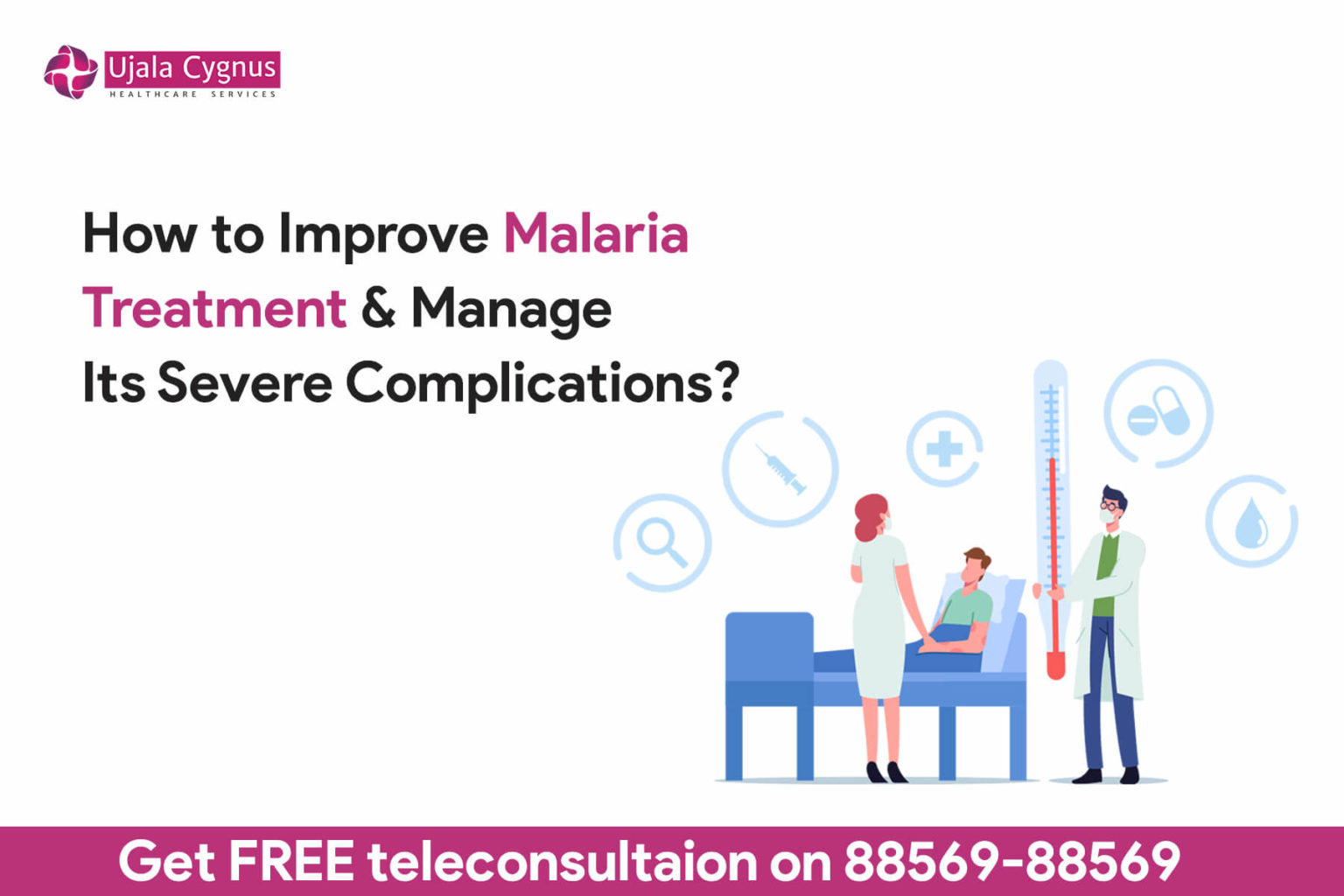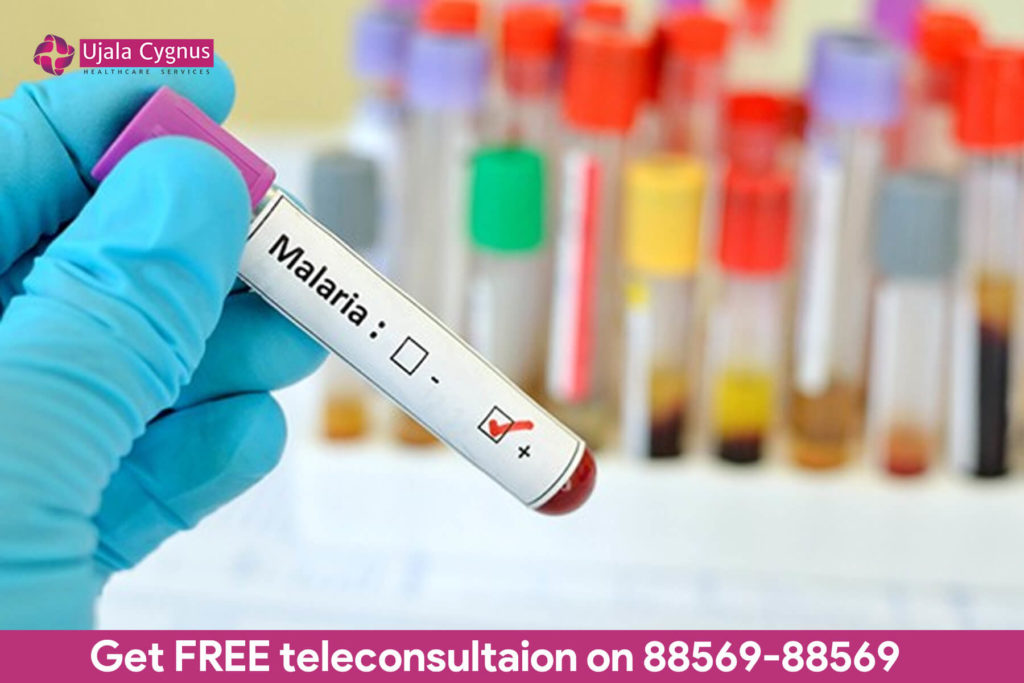How to Improve Malaria Treatment & Manage Its Severe Complications?

Half of the world’s population lives in areas which are at threat of malaria transmission. Many developed nations have already eliminated the disease condition, but many developing countries in tropical and subtropical zones are still trying to fight it. Malaria control requires a combined approach, including prevention and instant malaria treatment.
If malaria is diagnosed early, there are high chances of effective treatment. With increasing malaria cases around the globe, it becomes crucial for us to stay aware of its complications and treatment.
This blog covers all the vital information on malaria, its complications, medicines, and treatment options.

5 Effective Tips for the Best Malaria Treatment
1. In severe malaria types like falciparum malaria, early diagnosis and prompt treatment within 24 to 48 hours are crucial. If you notice any malaria symptoms, consult an expert immediately to prevent a severe fatal stage.
2. Antimalarial drugs are effective in preventing and treating most malaria cases. However, not everyone should consume these medicines unnecessarily.
3. If you have malaria, consult an expert and get a prescription for antimalarial medicines. These medicines are effective drugs that help fight the diseases based on their severity.
4. To prolong their useful therapeutic life and ensure that all patients have an equal chance of being cured.
5. The next most important thing that needs to be ensured is the quality of antimalarial drugs and what is the optimal dosage decided for the treatment.

Malaria Diagnosis
By doing instant, accurate diagnosis of malaria, disease management is possible. All patients with suspected malaria should be treated based on a confirmed diagnosis by microscopy examination or RDT testing of a blood sample.
Correct diagnosis of malaria in vulnerable populations, particularly people with weak immune systems and young children, can be helpful in the effective treatment in malaria-prone countries.
If severe infections like P. falciparum are not treated promptly and adequately, there can be a loss of life. Cases of severe malaria disease it is indicated by one or more of the following features:
- Deficient consciousness/coma
- Repeated generalized seizures
- Renal failure
- Jaundice
- Severe anemia
- Pulmonary oedema/acute respiratory distress syndrome
- Hypoglycemia
- Metabolic acidosis
- Circulatory collapse/shock
- Abnormal bleeding
Managing Malaria Complications
The management of severe malaria is possible where the health facilities are equipped with:
- Parenteral antimalarials, anticonvulsants, antibiotics, antipyretics.
- Intravenous infusion equipment and fluids.
- Special nursing for patients in coma
- Blood transfusion
- Well-equipped laboratory
- Oxygen
All these little things decide the quality of treatment of malaria patients.
Malaria Treatment During Pregnancy
Malaria during pregnancy is a significant general health concern and an essential contributor to maternal and infant morbidity and mortality. Pregnant women are exposed to malaria in low-transmission surroundings. They have a more noticeable risk of getting severe Plasmodium falciparum malaria.
Due to plasmodium falciparum, the infected red cells disrupt the nutritional exchange between mother and fetus and cause intrauterine growth retardation.
Malaria during pregnancy is linked with an:
- Advanced risk of abortion
- Stillbirth
- Low birth weight.
The World Health Organization (WHO) now suggests that all women in the second or third trimester of their pregnancy suffering from uncomplicated P. falciparum malaria should be treated with artemisinin-based blend therapy.
If you are pregnant and at risk of getting malaria, consult an expert on how you can prevent and treat it.
The Most Common Malaria Medicines
- The most common antimalarial drug is Chloroquine phosphate. It is the best treatment for any parasite sensitive to the drug. In many parts of the world, the parasite is immune to chloroquine, and the drug is no longer an effective treatment.
- Artemisinin-based combination therapies (ACTs) are a hybrid of two or more medications that work against the malaria parasite differently. It is the best treatment option for people resistant to chloroquine. Examples include artemether-lumefantrine (Coartem) and artesunate-mefloquine.
Some other familiar antimalarial drugs contain:
- Atovaquone-proguanil (Malarone)
- Primaquine phosphate
- Quinine sulphate (Qualaquin) with doxycycline (Oracea, Vibramycin, others)
Conclusion
Malaria is a common disease that can become severe if not treated or managed on time. If you notice any malaria symptoms, consult an expert immediately.
Moreover, along with medications, talk to your doctor about specific food items you should add and avoid in your diet.
What are the Signs & Symptoms of Malaria in Adult & Child Population?
Malaria FAQs
How long is malaria treatment?
Malaria treatment takes around two weeks to complete. In many individuals, the disease can come back. The appearance of symptoms may vary due to different Plasmodium species infecting human beings.
Malaria treatment also depends upon the type and severity of the disease. Avoid taking any medicines or drugs at home with a medical prescription.
Where does malaria breed?
There is a list of habitats where malaria likes to breed. Most of the species prefer clean and unpolluted water. The larvae of the anopheles mosquitoes are observed in fields, grassy ditches, the edges of streams and rivers, and small, temporary rain pools.
Ujala Cygnus Healthcare Group has 16 hospitals. Kanpur, Rewari, Kashipur, Varanasi, Sonepat, Panipat, Kurukshetra, Nangloi in Delhi, Rama Vihar in Delhi, Kaithal, Bahadurgarh, Karnal, Moradabad, Haldwani, and Agra.
You can book an appointment at your nearest Ujala Cygnus Hospital for any health issue treatment. For any query, you can give a missed call on 88569-88569 and get a free consultation over the phone.
